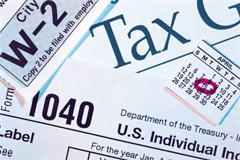Economics, EU – Baltic States, Taxation
International Internet Magazine. Baltic States news & analytics
Friday, 26.12.2025, 03:17
Tax havens in Europe: efforts to survive
 Print version
Print version |
|---|
The attraction of Jersey for private clients, such as UK resident non-domiciles, is that it allows them to structure their assets without having to worry about local tax complications. Because so much international wealth is concentrated or handled in London, Jersey’s proximity and historical links to the UK are a huge advantage. However, Jersey officials underline that the specific jurisdiction also appeals to businesses in the emerging markets such as China, Russia and India.
Opinion: “I would challenge the title ‘tax haven’ for a place such as Jersey,” “It is tax neutral and so clients have to be compliant in their home jurisdictions. London is a centre of excellence for private client legal work and that often requires a structure in a tax-neutral location”.
Paul Patterson, head of RBC’s global private banking for the British Isles said in Financial Times, Wealth Supplement, September 18 2008. See: www.ft.com/ftwealth.
Challenges and responses
To achieve its compliance with global standards, Jersey both altered its tax structures and increased co-operation with other jurisdictions in the exchange of information. Critics had attacked the fact that Jersey levied no tax on the corporate profits of companies with non-resident shareholders, while charging groups owned by resident shareholders 20 per cent, the same as its income tax.
Increasing the tax on overseas companies could have eroded Jersey’s competitive position and so it has adopted a “Zero-10” system – similar to the regime in Guernsey and the Isle of Man – where most companies will pay no tax on corporate profits from January 1, 2009.
The exceptions are about 1,000 companies in the finance sector that will pay tax on corporate profits at 10 per cent. There will also be “look through” provisions to tax the profits of companies owned by island residents at 20 per cent so they cannot use companies to cut personal tax.
The downside has been to create a shortfall in the island’s budget estimated at about £80m ($143m) a year. Part of that gap is due to be filled by a contentious new general sales tax at 3 per cent that has sparked widespread opposition among residents.
Comparing Jersey with the Isle of Man, the maximum tax on the latter is £100,000 and that’s the minimum on the former. So often main motivation is family life, not taxes, said a recent arrival. So it’s not the cheapest option for taxation and it’s not the easiest one to get into.
Residents’ problems
Gaining residency in Jersey has long been perceived as a complicated issue. The much-confidential and privileged status is reserved for high net worth Island’s individuals. But the island has recently sought to make the process appear more straightforward in a promising bid for more wealthy residents. It has designed a more transparent system with strict criteria and insists hat there are no more illicit backdoor deals to be done.
There are about 170 “privileged-K” residents on the island; most of them arrived before the recent changes were on place. Now, about 10 people a year are granted residency, but there are no quotas or limits. High-value residents pay a minimum of £100,000 a year in income tax.
The first £1m of taxable global income is taxed at 20 per cent, the next £500,000 at 10 per cent and anything above that at 1 per cent. So it is not worth even considering using the place if one’s taxable income is less than £500,000. Property is always an issue and residents with K-status are only allowed to buy “K category” houses, with prices starting at about £1m.








 «The Baltic Course» Is Sold and Stays in Business!
«The Baltic Course» Is Sold and Stays in Business!

